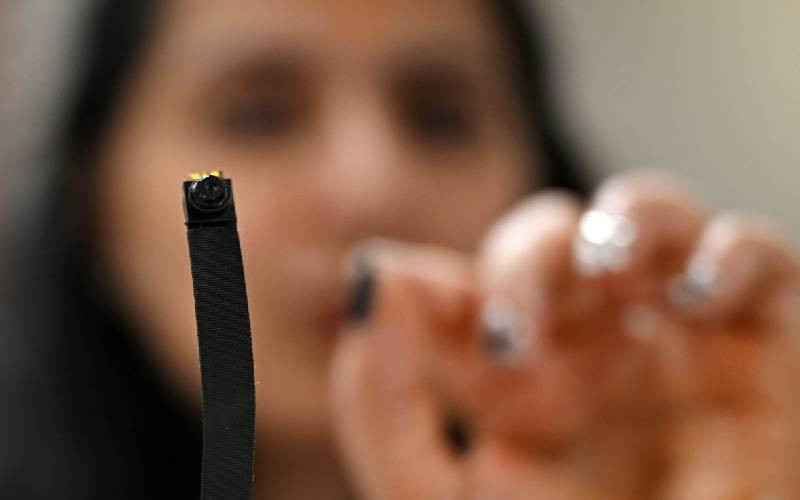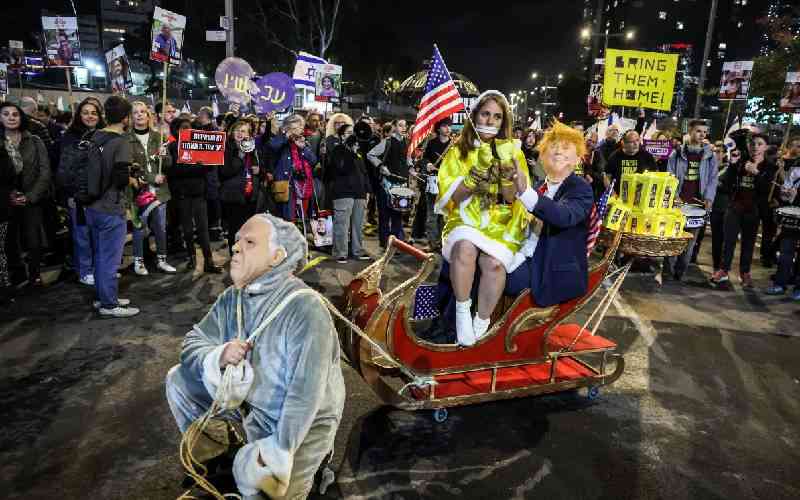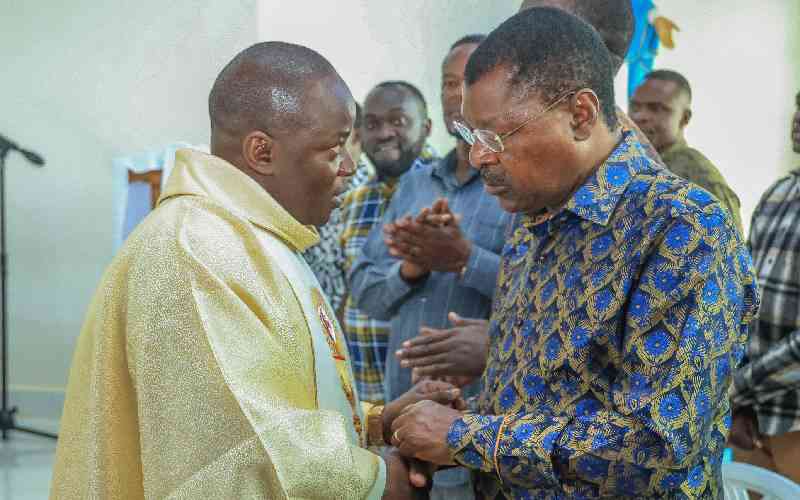NAIROBI: The media is oft an easy scapegoat. In the aftermath of the GES, hordes of 'media analysts', have gone hammer and tongs on the Press over its handling of the just concluded GES 2015, yet another example of how media is easily made a scapegoat.
These analysts' reading of media reportage is damning – coverage was not only dismal, it was focused on the wrong things. According to this reading, the Kenyan press focused on "minor distractions" at this very important conference – POTUS (President of the United States), his family and lifestyle, his toys, namely the Beast, Air Force One and Marine One; that the media glossed over big picture issues – entrepreneurship, investment and bilateral talks between Uhuru Kenyatta and Barack Obama.
Analysts on social media and talking heads on television told anyone who cared to listen that the meaty media abandoned the boulders and went for the pebbles.
Of course this is not the first time that the media, which is scorned and praised in equal measure, has been designated a carry-all flak-taker. From politicians claiming they were misquoted, and individuals caught in scandals accusing them of invading privacy, to government officials terming them unpatriotic and focusing on negativities that paint countries in bad light internationally, the media is always on the receiving end.
The reality though is that, like leaders, we get the media coverage that we deserve. The media, like art, is a mirror held up for society to gaze at itself. The media is also in business, and misreading its audience is costly. If media focused on matters that we, the audience, did not care about, they would be out of business. The Kenyan media is not only in business; and viewed as a sector, it is also doing very well. It is because the media outlets are giving us what we want as readers, listeners and viewers.
One of the basic lessons at journalism school is that the role of media is to inform, educate and entertain. On its coverage of the GES 2015, the media did very well on these three counts. Indeed, had the media focused on what our media analysts call the big picture issues, they would be drifting from their audience.
The average Kenyan media consumer does not think much about business news, which is where most of the coverage on the summit would have been. This is the reason why business news is given a small proportion of the news in dailies and bulletins. Such news is tucked deep past page three in print media, and after the main news in broadcast media.
But it is also the 'news value' of events that matters. This includes proximity of the news, its unusualness, timeliness, prominence and the emotions involved. Between the price of potatoes that has increased by 3 per cent and a politician caught with his assistant's wife in a compromising situation, the latter wins on news value any day.
President Obama is a media phenomenon, in Kenya and elsewhere. He makes news. Kenya is not just anywhere, but the land of his father's birth. He was visiting for the first time since he ascended to the position that makes him the most powerful man on the planet.
The least anyone would expect is that he would hog the space and time in media long before he lands, and after he leaves. Any editor who misses this point is not worth the title.
My verdict is that the disappointment with the coverage has nothing to do with its focus or quality. Rather, most of these events were beamed live, in their wake, arousing furious banter on social media. By the time the events of the day appeared in in news bulletins and newspaper pages, they were already old news.
We had already seen President Obama land, the famous ride in The Beast with his sister and everything else he did before the newspapers went to print.
The challenge for the Fourth Estate is not about its focus; rather, it is in adapting and keeping abreast of rapidly unfolding events, and to determine what is news within what times spans. We live in a world where social media and live coverage of events have made the work of a journalist a lot more complicated.
It is incumbent upon the modern day journalist to report knowing that his audience already have full view of the happenings via social media and live broadcasts (depending on how big the issue is). In such a case, the journalist is obliged to give informative and fresh analysis to be relevant.
Stay informed. Subscribe to our newsletter
Kenya has journalist that are at par with the best in the world. They might just lag in innovation. It is not that Kenyan media did not see news value in the summit and the throngs of entrepreneurs from across the world in attendance. The issue is that that they gave us 'news' that was rather late to be news.
 The Standard Group Plc is a
multi-media organization with investments in media platforms spanning newspaper
print operations, television, radio broadcasting, digital and online services. The
Standard Group is recognized as a leading multi-media house in Kenya with a key
influence in matters of national and international interest.
The Standard Group Plc is a
multi-media organization with investments in media platforms spanning newspaper
print operations, television, radio broadcasting, digital and online services. The
Standard Group is recognized as a leading multi-media house in Kenya with a key
influence in matters of national and international interest.
 The Standard Group Plc is a
multi-media organization with investments in media platforms spanning newspaper
print operations, television, radio broadcasting, digital and online services. The
Standard Group is recognized as a leading multi-media house in Kenya with a key
influence in matters of national and international interest.
The Standard Group Plc is a
multi-media organization with investments in media platforms spanning newspaper
print operations, television, radio broadcasting, digital and online services. The
Standard Group is recognized as a leading multi-media house in Kenya with a key
influence in matters of national and international interest.








